| Motion |
Patient Position |
Start Position |
End Position |
| Plantarflexion (Gastrocnemius
and Soleus in standing position) |
Patient
stands on test limb with knee extended. Patient may place one or two
fingers on a table or other external surface to assist with balance.
Therapist should stand or sit with a lateral view of test limb. Patient
actively raises heel from floor 20 consecutive times without rest or
fatigue through a full range of plantarflexion. |
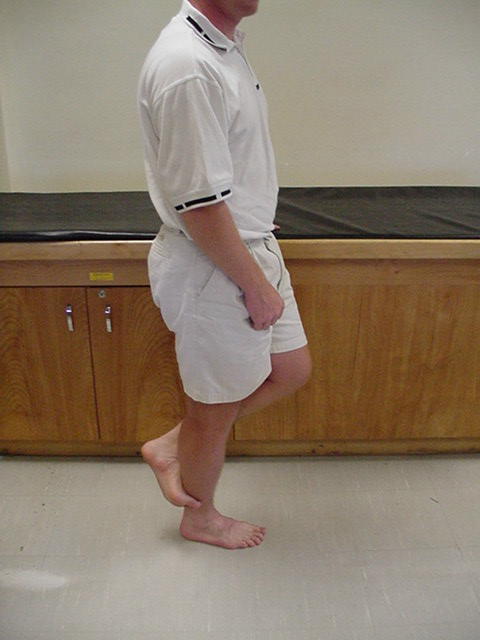 |
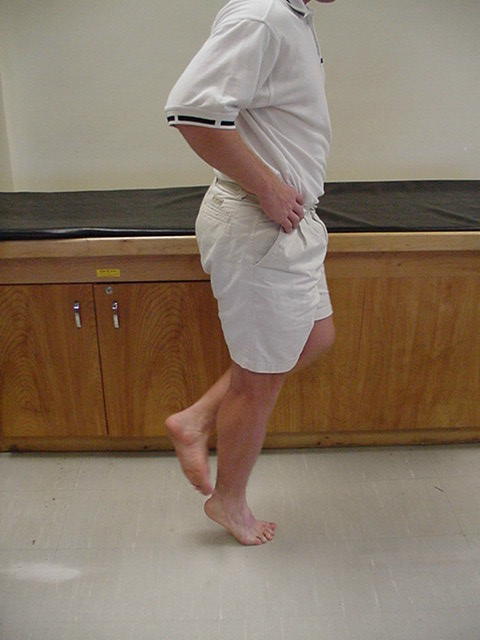 |
| Plantarflexion (Soleus
only in standing position) |
Patient
stands on test limb with knee slightly flexed. One or two fingers may be
used to assist with balance. Therapist stands or sits with a lateral view
of test limb. Patient actively raises heel from floor 20 consecutive times
without rest or great fatigue through full range of plantarflexion. |
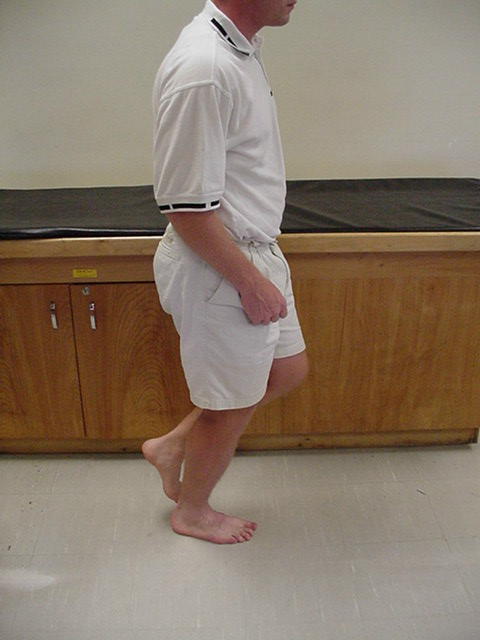 |
 |
| Neutral
Dorsiflexion (Tibialis Anterior, Extensor Digitorum Longus, Peroneus
Tertius, Extensor Hallicus Longus) |
Patient
is short sitting with ankle plantarflexed. Therapist sits on stool in
front of patient and uses one hand to stabilize the leg just above
the malleoli. The other hand is used for resistance by placing it on the
dorsal aspect of the foot. Patient actively dorsiflexes against
resistance. |
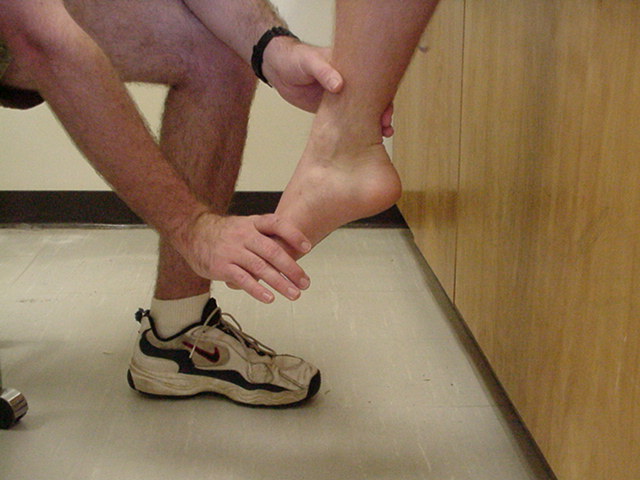 |
 |
| Inversion |
The
patient is short sitting with ankle in slight plantar flexion. Therapist
sits in front or on side of test limb and uses one hand to stabilize the
ankle just above the malleoli. The other hand provides resistance by
contouring over the dorsum and medial side of the foot at the level of the
metatarsal heads. Resistance is directed toward eversion and slight
dorsiflexion while patient actively inverts foot. |
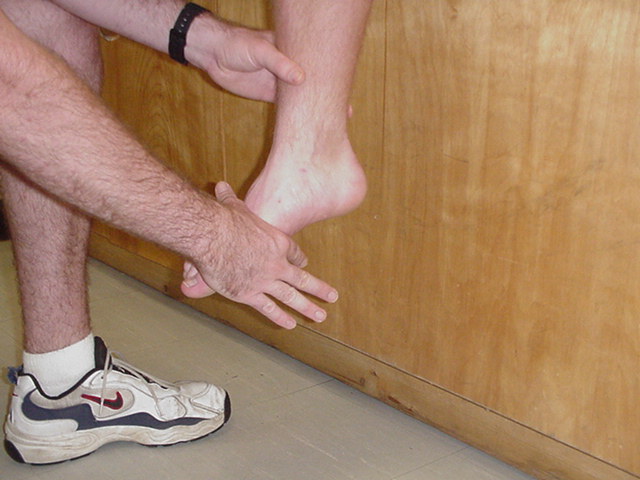 |
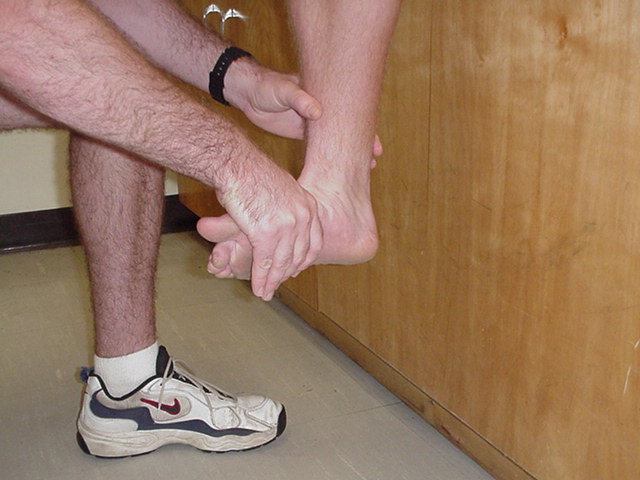 |
| Inversion
with dorsiflexion |
Patient
may be short sitting or supine. The therapist sits on a stool in front of
the patient with patient's heel resting on thigh. One hand stabilizes
posterior leg just above the malleoli while other hand provides resistance
over the dorsomedial aspect of foot. Patient actively dorsiflexes ankle
and inverts foot, keeping toes relaxed. |
|
|
| Eversion |
The
patient is short sitting with ankle in slight plantar flexion. Therapist
sits in front or on side of test limb and uses one hand to stabilize the
ankle just above the malleoli. The other hand provides resistance by
contouring over the dorsum and medial side of the foot at the level of the
metatarsal heads. Resistance is directed toward inversion and slight
dorsiflexion while patient actively everts foot. |
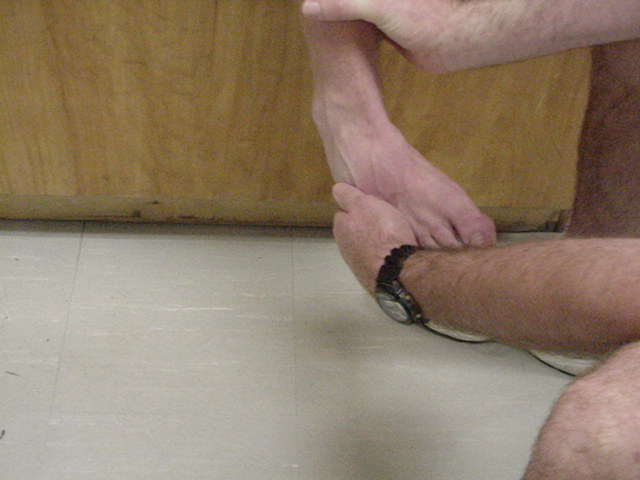 |
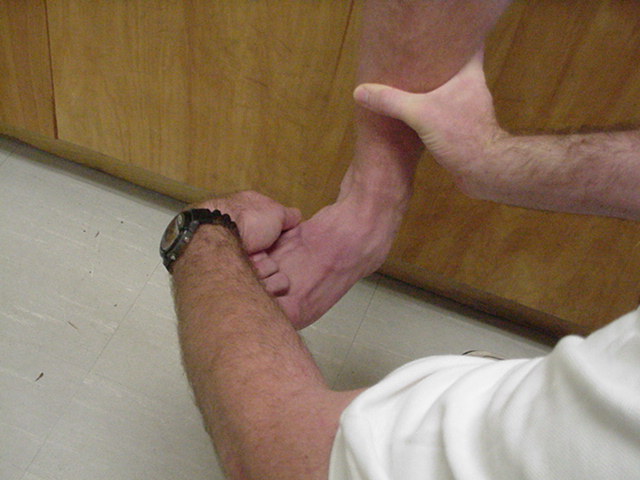 |
| Eversion
with plantar flexion |
Patient
is short sitting with ankle in neutral position. Therapist is sitting on a
stool in front of patient. One hand stabilizes the ankle just above the
malleoli while other hand provides resistance around the dorsum and
lateral border of the forefoot. Resistance is directed toward inversion
and slight dorsiflexion. Patient actively turns the foot down and out. |
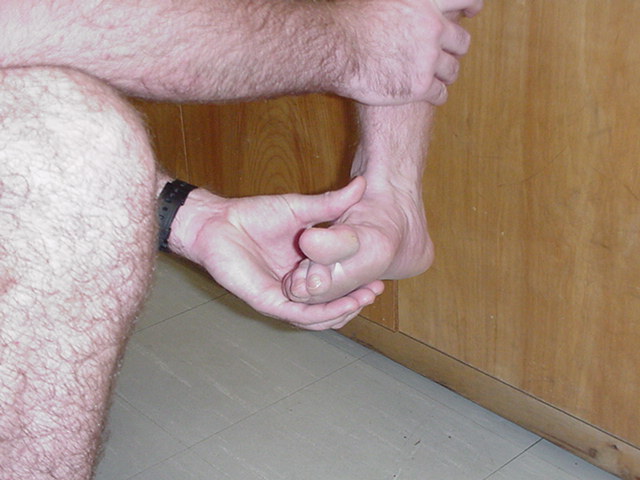 |
 |
Hislop, Helen J. & Montgomery, Jaqueline with
contributor Barbara Connelly.











